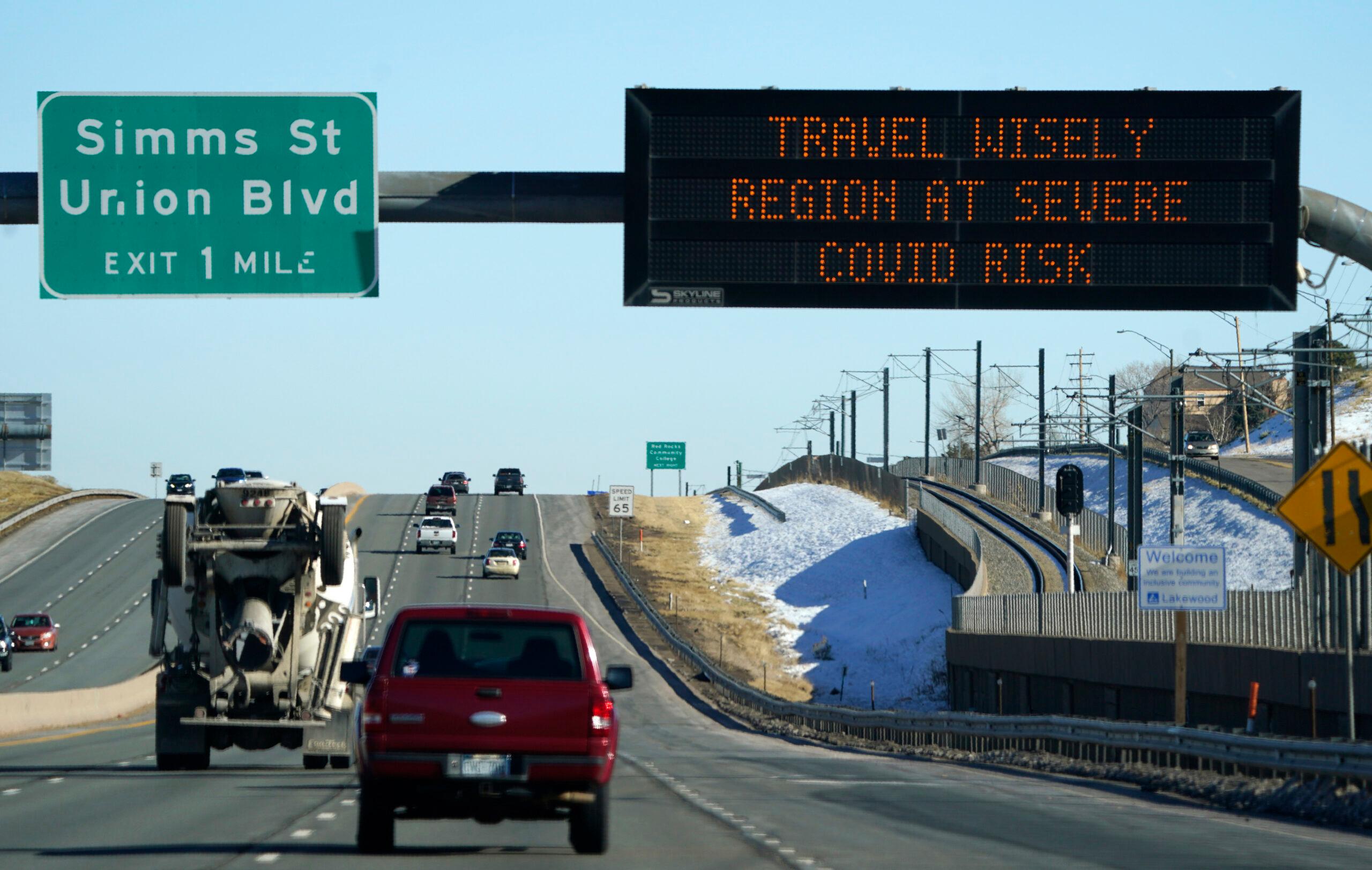
The feared post-Thanksgiving spike in COVID-19 cases appears to have skipped over Colorado.
In early December, the nation’s top infectious disease leader, Dr. Anthony Fauci warned that a wave of cases might not fully materialize for weeks and could hit right as the Christmas holiday week starts.
In a call with reporters, Dr. Eric France, the state’s chief medical officer, pointed out that “from the 7th of December on, any Thanksgiving exposure increase would have led to increased cases, and we really haven't seen it.”
The worry was many people would travel and gather in-person for Thanksgiving. It was something public health officials, like Fauci, warned could spread COVID-19. But people in this state at least seemed to have listened, and flattened the curve, France said.
“We attribute that flat to the hard work of all Coloradans,” France said.
His comments echoed the governor as well who attributed the state’s dodging of spike to its citizens..
“Thankfully Coloradans did very well, and were thoughtful, collectively, about Thanksgiving,” Gov. Jared Polis said on Dec. 15. “It doesn't mean you don't know somebody who did the wrong thing for Thanksgiving. We all do. But by and large, the numbers bear out that Coloradans made good science-informed decisions to keep their families safe.”
A lot of the state’s COVID-19 data certainly gave serious cause for concern.
A clear fall surge that started after Labor Day only accelerated in October, but that didn’t happen again after Thanksgiving, at least so far. The number of patients hospitalized with confirmed or suspected cases of COVID-19 peaked on Dec. 2 at 1,995. That figure dwarfed the earlier high from mid-April by 718 cases.
Case counts are starting to fall as well. The seven-day average number of cases reported to the state peaked on Nov. 18 at 5,076. As of Dec. 15, the seven-day average is 3,213.
In terms of coronavirus testing, the seven-day overall positivity level remains high — 8.91 percent as of Dec. 15 — and well above the 5 percent public health officials view as a danger threshold.
Still, for the first 10 days of December, according to the seven-day average, at least 50 Coloradans died each day. As of the publishing of this story, the total number of COVID-19-related deaths in Colorado now stands at 4,156 with a quarter of those deaths happening from mid-November to early December.
Despite that very real carnage, Colorado appears to have avoided an even worse fate that’s playing out across the country.
The predicted post-Thanksgiving wave of cases hit two weeks after the holiday, with the United States exceeding 200,000 new cases and 3,000 deaths a day, a new record. New cases and hospitalizations rose by 20 percent, and deaths soared by 39 percent, according to Healthline.
California, for example, is grappling with a flood of new cases; three southern California counties recorded the highest increase in COVID-19 cases in the country the week after Thanksgiving. The increase appeared to be fueled by Thanksgiving travel, according to one analysis. On Dec. 16, the U.S. saw more than 3,500 deaths, a record, as California topped 41,000 cases reported in one day, also a record.
In mid-November, Colorado changed its color-coded dial system to add a new highest restriction level. More than a dozen counties announced new rules to limit personal gatherings, stop indoor restaurant dining and add restrictions on offices and gyms. France said the goal was to rein in an “exponential” rise in cases.
“Our hope there was that we would keep the curve flat and not see a post-holiday bump,” he said. So far, it seems to have worked.
Still, public health officials and the governor warn the vigilance must continue over the Christmas holiday, New Year’s and beyond. Broad community spread of the virus is still being recorded statewide and, they say, if people let down their guard, case numbers could explode again and overwhelm hospitals. Despite the improvement in virus trends, a quarter of Colorado hospitals reported anticipating staff shortages within the next week.









